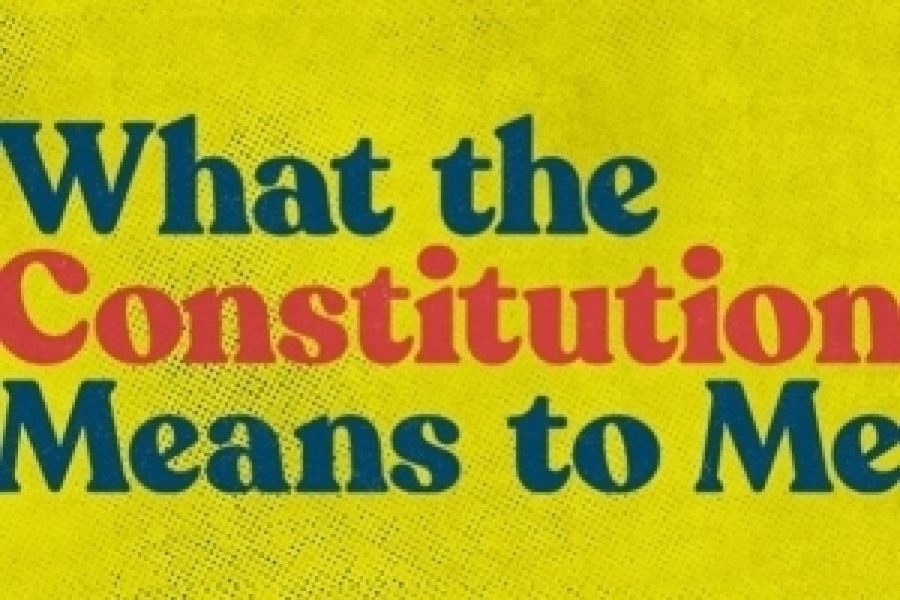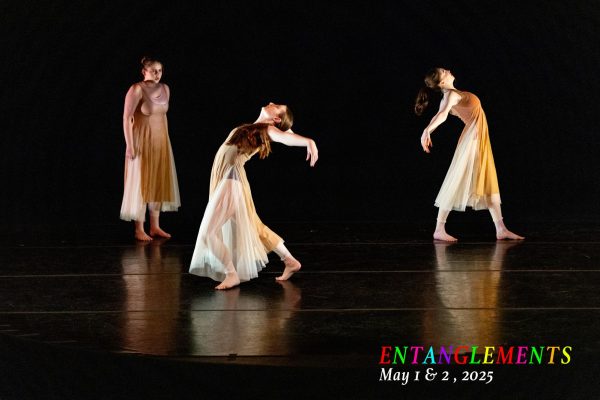A Review of ‘What The Constitution Means to Me’
“What the Constitution Means to Me” just closed after a brief run at Chicago’s Broadway Theater. For those of you who missed it, catch the actual Broadway version by streaming it on Amazon Prime. It’s definitely worth seeing, especially for anybody in Latin’s junior class.
All juniors are taking U.S. History and are working to understand what the U.S. Constitution meant for our ancestors and what it means for us today. The 100-minute play, with no intermission, tackles the exact issues the junior class is studying. It asks who the Constitution left out and presents the consequences of those omissions. Its author, lead character, and narrator, Heidi Schreck, traveled the country as a teenager, debating at American Legion Halls. She participated in these debates all around the country as a high school student for prize money and was successful enough to pay her entire way through college with that prize money.
In the Chicago version of the play, Heidi Schreck is played by actress Cassie Beck. In the Broadway version, as well as the one available on cable, Heidi plays herself. For the first half of the play, Heidi appears as her 15-year-old self at a time when she worshipped the Constitution and “thought it a work of genius.” Later in the play, however, Heidi addresses the crowd as an adult with a more critical and less naive view of the Constitution.
For those students falling asleep in history class, or whose eyes may be skimming over the words of the Constitution without really absorbing them, this play makes the amendments actually exciting. Heidi gives them drama; she brings them to life. I particularly enjoyed how she made the Constitution feel like a living organism, and started thinking about what the Constitution means to me.
Heidi focuses on the 14th Amendment and its “awesome superpowers.” She explains how it took courageous and persistent civil rights leaders to activate this amendment’s superpowers. She shows how real people, activists and Supreme Court justices are what make the Constitution work. She doesn’t shy away from confronting how the Constitution doesn’t work, or how it prevents liberty both by leaving people out and strictly allowing it to be interpreted by an exclusive group of white men for so many years.
At one point in the play, Heidi asks all the audience members to raise their hand if they are white, property-owning men. Once the hands were up, she informed the audience that only those people would get to decide how their country would be governed, and then asked the audience how they would feel about that. The audience definitely understood the point. At another point in the play, the narrator plays the voice of Justice Ruth Bader Ginsburg. By playing the famous audio clip of when RBG is asked when will there be enough women on the Supreme Court, and her subsequent answer, “When there are nine,” Heidi makes the point that our Constitution was meant to protect white men.
Heidi points out that it takes until page 34 of the Constitution for women to get included, noting that this was 54 years after the 13th Amendment. The play includes sobering statistics about how the United States is one of the 10 most violent countries in the world for women. Heidi weaves in her personal story of the effect of domestic violence on her family, as well as her sorrow about how the Supreme Court rejected the Violence Against Women Act as unconstitutional.
At the end of the play, 17-year-old Emilyn Toffler, a high school student and accomplished debater from Sierra Canyon High School in California, joined Beck on stage for a live debate of whether the United States should start over with a new Constitution. This was exciting and thought provoking. An audience member was selected to be the judge and, the night I was there, abolishing the Constitution prevailed as the verdict.
Even though Heidi is critical of the Constitution, the play highlights the value of debating what’s constitutional, if the Constitution works, and who it works for. By bringing a high school student on stage to debate, the playwright urges young people to take it forward. The play makes the point that while the Constitution isn’t perfect, it’s up to citizens to work with it and make it the best it can be.
Junior Braden Sedler was moved by the performance. He said, “You will leave it feeling both content with the performance yet surprised at how seriously neglected so many Americans are. You will laugh at Heidi’s funny portrayal of a 15 year old comparable to Leslie from Parks and Rec, but there are parts that will force you to think about who you are and what side of history you are on.” He added, “It’ll change your perspective on what it means to be American.”
At the end of the production, they passed out a mini-Constitution to each audience member as a souvenir. I must admit I looked at both the trinket and the real Constitution differently after seeing the play.

Matthew Kotcher ('23) is thrilled to continue to serve on The Forum as the Arts Editor and now as Director of Staff Recruitment and Development. Matthew,...




















































